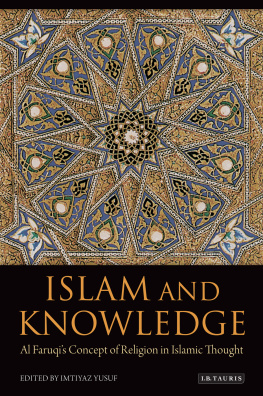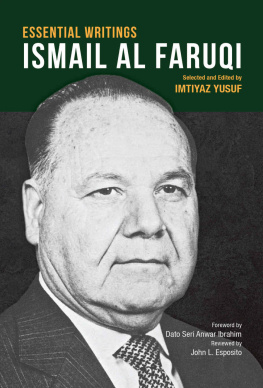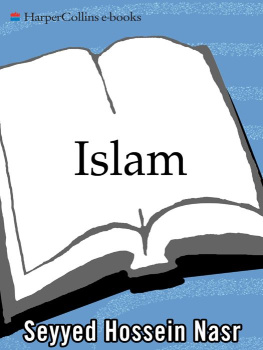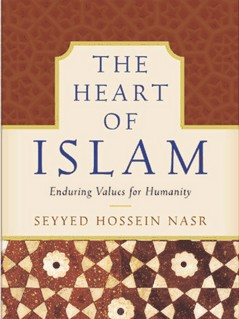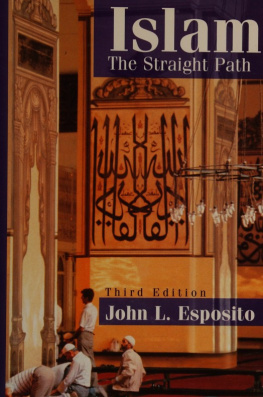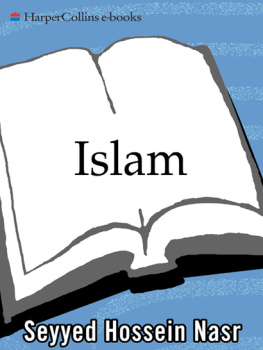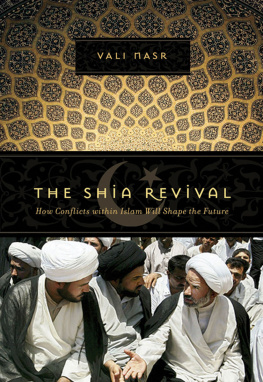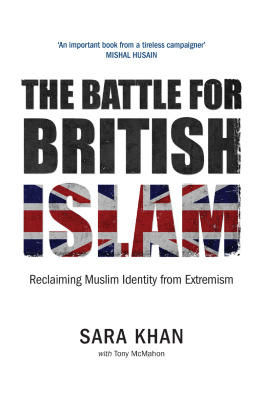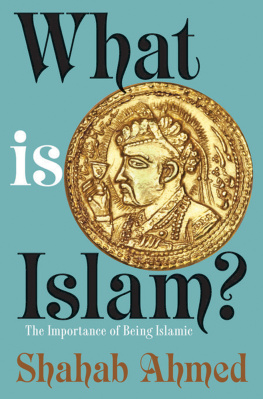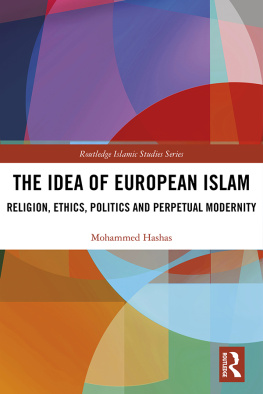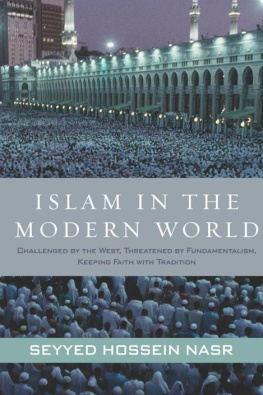Islam and Knowledge
Al Faruqis Concept of Religion in Islamic Thought
Essays in Honor of Ismail Al Faruqi
Edited by Imtiyaz Yusuf

Published in 2012 by I.B.Tauris & Co Ltd
6 Salem Road, London W2 4BU
175 Fifth Avenue, New York NY 10010
www.ibtauris.com
Distributed in the United States and Canada Exclusively by Palgrave Macmillan
175 Fifth Avenue, New York NY 10010
Copyright 2012 International Institute of Islamic Thought
All rights reserved. Except for brief quotations in a review, this book, or any part thereof, may not be reproduced, stored in or introduced into a retrieval system, or transmitted, in any form or by any means, electronic, mechanical, photocopying, recording or otherwise, without the prior written permission of the publisher.
ISBN: 978 1 78076 068 1
eISBN: 978 0 85773 126 5
A full CIP record for this book is available from the British Library
A full CIP record is available from the Library of Congress
Library of Congress Catalog Card Number: available
Contents
Part 1: Memorials
Part 2: Academic Papers by Students of Ismail Al Faruqi
Appendices
Illustrations
2 Oldest surviving mosque in Malaysia, originally built in Kampung Laut
3 Mosque in Sulu drawn as seen during the expedition of Captain Charles Wilkes in 1842
4 Tubig Indangan (Makhdum) Mosque c. 1970s
5 Pillars in Tubig Indangan (Makhdum) Mosque
6 The Tubig Indangan Mosque after the 1980 reconstruction
7 Dabu-dabu drums in front of an antique shop in Marawi City
8 Front of the Tubig Indangan (Makhdum) Mosque in 2004
9 King Faisal Mosque, Mindanao State University
10 Bacolod Grande Mosque
11 Gnassi Mosque
12 Masjid al Saduc (Marawi area)
13 Marawi Islamic Center, dome interior
14 Qiblah and mihrab , Marawi Islamic Center
15 Qiblah and mihrab, Tubig Indangan Mosque
16 Mihrab and minbar, Masjid Awwal, Bonggao, Tawi-Tawi
17 Mihrab, Santa Barbara Mosque, Zamboanga City
18 Mihrab, Green Mosque, Cebu City
19 Bacolod Grande prayer times
20 Mosque in Sultan Kudarat, Maguindanao
21 Paranaque Grand Mosque by Manila Bay
22 East Fairview Mosque, Quezon City
23 Masjid Mindanao (Blue Mosque), Maharlika Village
24 Woodcarving above door, Masjid Mindanao, Maharlika Village
25 Door of the Sultanamet Mosque, Istanbul
26 Globo de Oro dome and mosaic featuring ukkil designs and colors
27 Globo de Oro Mosque, mosaic wall
28 Globo de Oro Mosque, Quiapo, Manila
29 Culiat Mosque, Quezon City
30 Tubig Indangan (Makhdum) Mosque, womens section
31 Blue Mosque, Autonomous Region of Muslim Mindanao compound, Cotabato City, womens section
32 Aparri Mosque, Aparri, Cagayan, womens section
33 Bacolod Grande Mosque, womens section
34 Santa Barbara Mosque, Zamboanga City, womens section
35 Al-Khayria Mosque, Cebu City, womens section
Figure
1 The Seven Values of the Islamic Scheme of Life
Contributors
Khurshid Ahmad is Senator of Pakistan, world-renowned research scholar, an educationist, an economist, a versatile writer, and Vice-President of Jamaat-e-Islami Pakistan and Founder and Chairman of both the Institute of Policy Studies, Islamabad and the Islamic Foundation, UK. His indepth comparative study of the oriental as well as occidental philosophies in religion, academics, economics, constitutional matters, and commitment to Islam has led him to be entrusted with key positions in the national as well as international organizations on these socio-economic and other multi-dimensional disciplines. He has held the portfolio of the Federal Minister for Planning and Development and was Deputy Chairman of the Planning Commission from 1978 to 1979. An academician, he taught at the Karachi University from 1955 to 1968, was a research scholar at the University of Leicester, UK, and headed the Islamic Foundation, UK and Islamic Research Academy, Karachi. He has also been advisor to King Abdul Aziz University, Jeddah, Saudi Arabia. In view of his pioneering work and contributions toward the development of Islamic economics as an academic discipline, he was awarded the first Islamic Development Bank Award for Economics in 1988. His contributions to the Islamic cause and Islamic movement were recognized in the form of the King Faisal International Prize in 1990. He has published more than seventy books in English and Urdu.
Anis Ahmad is Meritorious Professor and Vice-Chancellor, Riphah International University, Islamabad. He is chief editor of The West and Islam , a quarterly journal published from Islamabad. Prof. Anis writes on contemporary socio-political, cross-cultural and gender issues, with special reference to Islam and Muslims. Some of his writings are translated into Arabic, Turkish, and Chinese. He has taught at universities in the USA, Malaysia, China, and Pakistan. He has also delivered extension lectures in Europe, Australia, Africa, China, Canada, the USA, Central Asia, Southeast Asia, and South America.
Vivienne SM. Angeles is Associate Professor of Religion and teaches Islam and Comparative Religions at the Department of Religion at La Salle University in Philadelphia. She holds a B.A. in Political Science from the University of the Philippines, an M.A. in Political Science from Kansas State University, and an M.A. and Ph.D. in Religious Studies, and a major in Islamic Studies from Temple University. Angeles has published on the subjects of Muslim movements, Muslim identity, and Muslim women in the Philippines and Southeast Asia; she is co-editor of Identity in Crossroad Civilisations: Ethnicity, Nationalism and Globalism in Asia and Gender, Religion and Migration: Pathways of Integration and is on the editorial board of Comparative Islamic Studies . Her current research interest is visual expressions of Islam in the Philippines and Malaysia. She was the recipient of a Lindback Minority Faculty research grant and a Fulbright research and lecture grant to Malaysia. She is a past president of the American Council for the Study of Islamic Societies and is an affiliate of the Harvard University Pluralism Project.
Abul Fadl Mohsin Ebrahim is Professor of Islamic Studies at the University of KwaZulu-Natal, Durban, South Africa. He has particular interest in Islamic law and bioethics and has authored three books, namely, Abortion, Birth Control, and Surrogate Parenting: An Islamic Perspective ; Organ Transplantation, Cloning, Euthanasia and Animal Experimentation: An Islamic View ; and An Introduction to Islamic Medical Jurisprudence .
John L. Esposito is Professor of Religion and International Affairs and of Islamic Studies at Georgetown Universitys Walsh School of Foreign Service. Founding Director of the Prince Alwaleed Bin Talal Center for MuslimChristian Understanding, Esposito is editor-in-chief of The Oxford Encyclopedia of the Islamic World ; The Oxford History of Islam ; and The Oxford Dictionary of Islam . His other publications include: Islamophobia and the Challenge of Pluralism in the 21st Century ; The Future of Islam ; Who Speaks for Islam? ; What a Billion Muslims Really Think ; Unholy War: Terror in the Name of Islam ; What Everyone Needs to Know about Islam ; The Islamic Threat: Myth or Reality? ; and Islam: The Straight Path . Esposito is a former president of the Middle East Studies Association and the American Council for the Study of Islamic Societies and Vice-President and President Elect (2012) of the American Academy of Religion.
Charles Fletcher has a B.Sc. in Physics from the University of British Columbia (1986), an M.Div. degree in Theology from Trinity Western University, British Columbia (1991), and an M.A. and a Ph.D. in Islamic Studies from McGill University (2003, 2009). He lived and worked in Turkey for almost ten years prior to his graduate studies on Islam and currently works and lectures at McGill University. He specializes in Islamic thought, comparative religion, and interfaith relations. His forthcoming book is titled MuslimChristian Engagement in the Twentieth Century: The Principles of Inter-faith Dialogue and the Work of Ismail Al-Faruqi .
Next page
